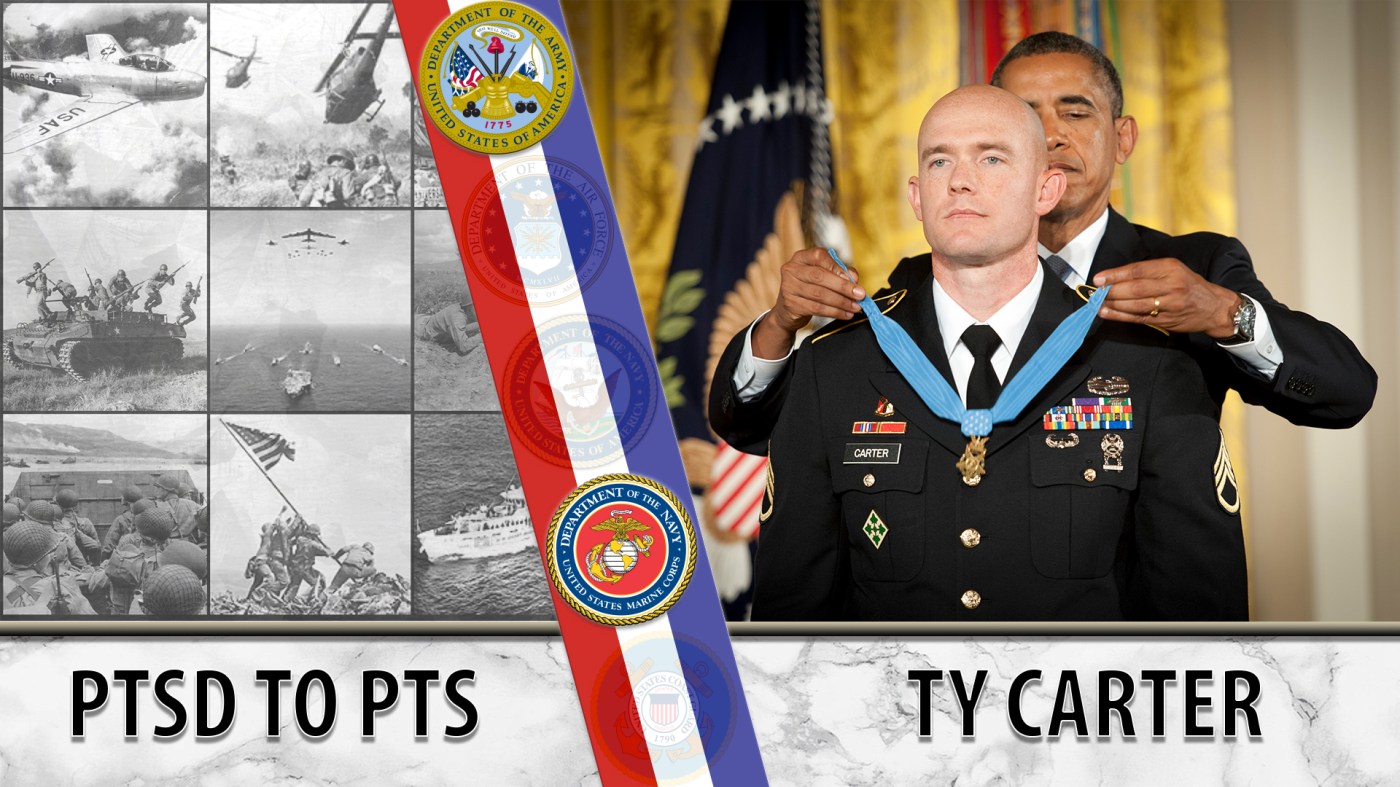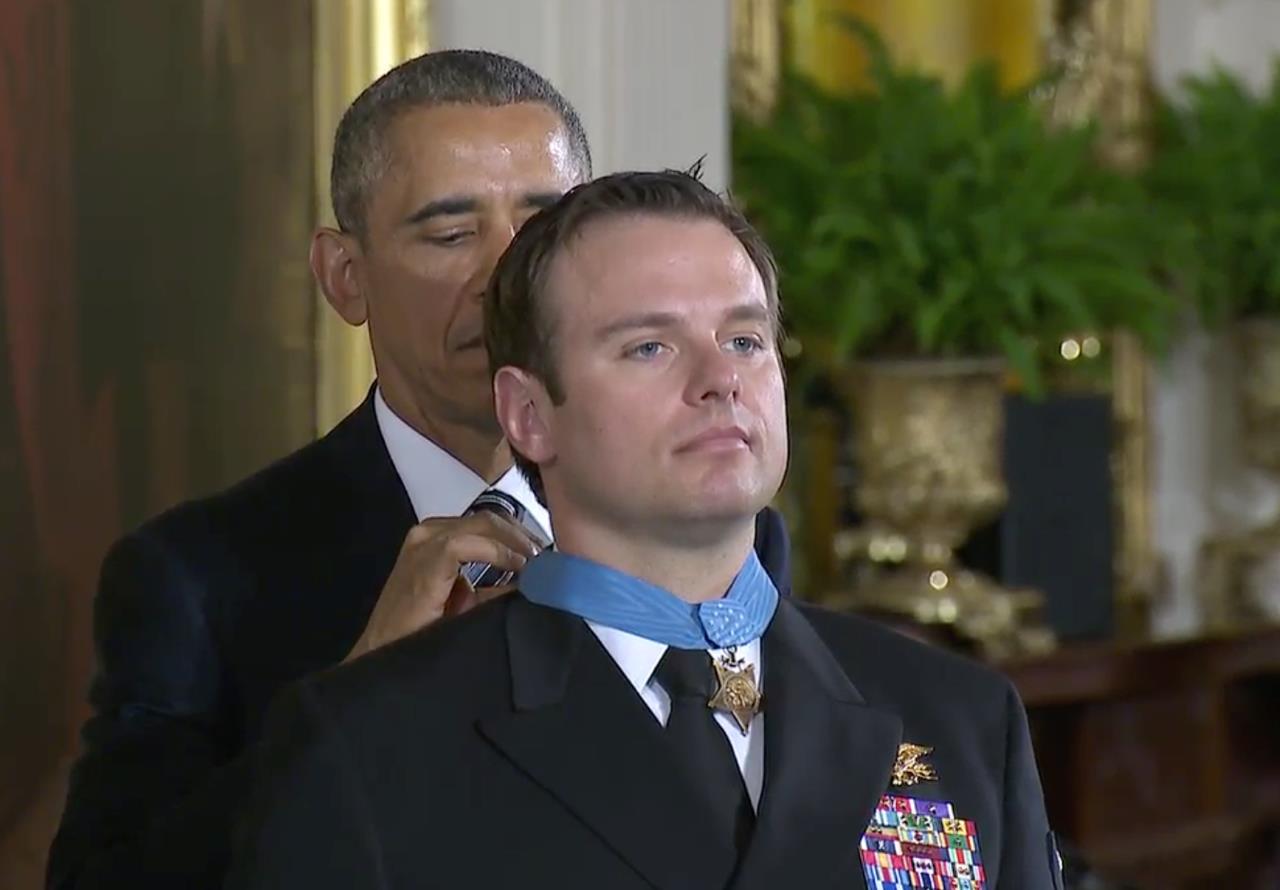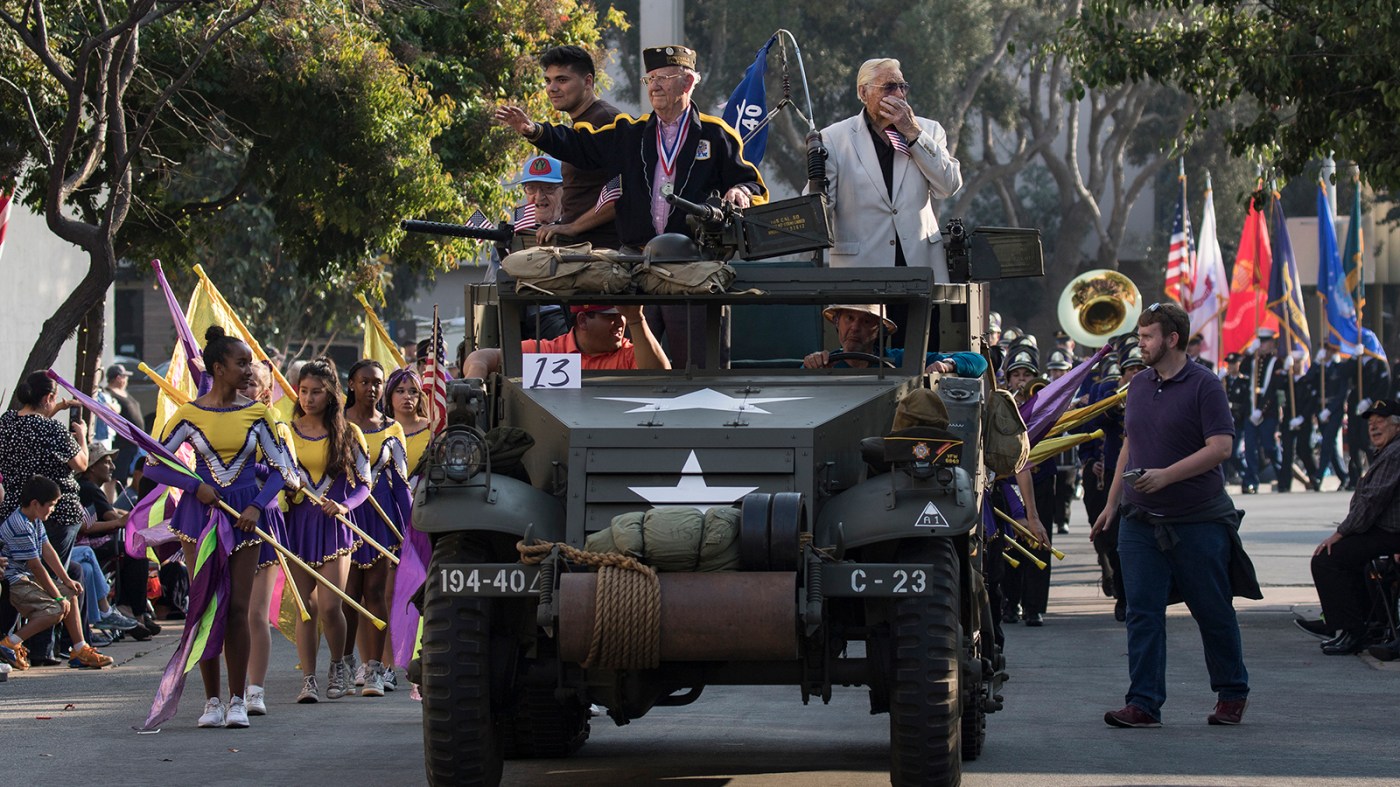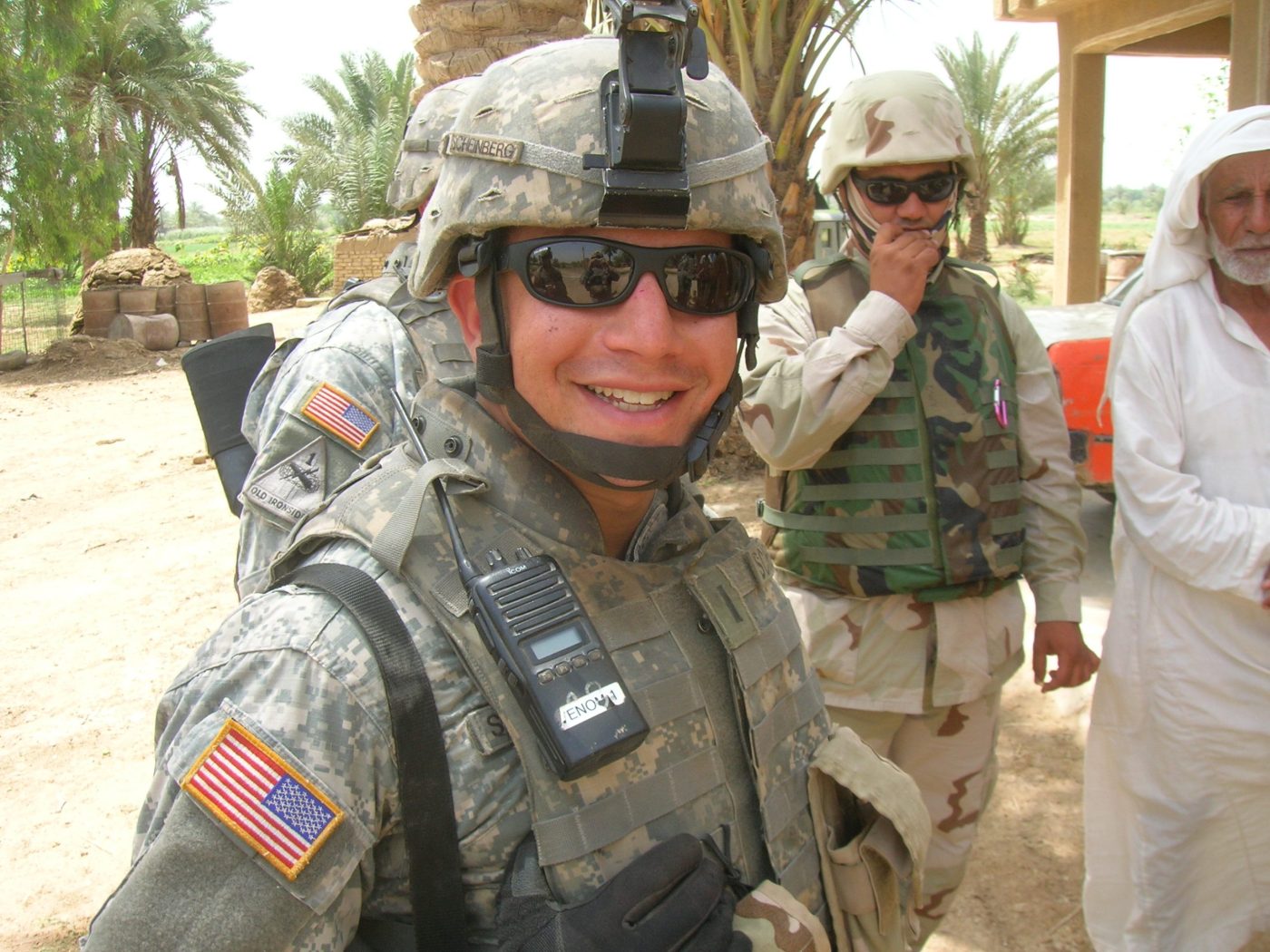
Ty Carter is an Army Veteran and recipient of the Medal of Honor for actions in battle in Afghanistan. Today, he is a mental health advocate.
Ty Michael Carter was born in Spokane, Wash., in January 1980. At 18, to avoid collegiate studies, Carter joined the Marine Corps, attending the Marine Corps Combat Engineer School. He served in Okinawa, Japan, as an intelligence clerk. Showing impressive marksmanship skills, Carter went to Primary Marksmanship Instructor School in 1999. Prior to being honorably discharged in 2002, he served two training deployments: one in San Clemente Island and another in Egypt.
Carter then enrolled in Los Medanos Community College in California to study biology. But he missed the camaraderie and sense of purpose that the military provided. In January 2008, Carter enlisted in the Army and then deployed to Afghanistan in 2009. He deployed to Afghanistan again in 2012. This second deployment would change the course of his life, leading to Aug. 26, 2013, when he was awarded the Medal of Honor by President Obama for his actions in battle.
Mental health advocate
After leaving the Army in 2014, Carter turned his attention to fighting the stigma associated with PTSD. He has championed for the removal of the ‘D’ from PTSD, encouraging those who deal with mental health issues to get help.
Carter was motivated by the idea of using his experiences to help others. He was impressed by how the military began acknowledging PTS as a combat wound and treating it as a life-threatening injury.
“Because by calling it a disorder, individuals believe that ‘If I have this, then there’s something wrong with me,’” Carter said. “With PTS, you just had a bad experience and you’re trying to learn from it and trying to reintegrate how you live your life with it, because that trauma will never go away.”
Carter now travels the country as a motivational speaker, focusing on mental health education. He is also a full-time student, studying firearms science and technology.
Thank you for your service, Ty Michael Carter!
Editor: Michelle Cannon
Graphics: Kimber Garland
Topics in this story
More Stories
VA recently developed a pilot program providing direct and specialized assistance for the 65 living Medal of Honor recipients nationwide.
This year, Veterans Day ceremonies recognized by VA will be held in 66 communities throughout 34 states and the District of Columbia to honor the nation's veterans.
A personal reflection on generational service from VA Deputy Assistant Secretary Aaron Scheinberg.







“Because by calling it a disorder, individuals believe that ‘If I have this, then there’s something wrong with me,’” Carter said. “With PTS, you just had a bad experience and you’re trying to learn from it and trying to reintegrate how you live your life with it, because that trauma will never go away.”
Ty, I have this, and there IS something wrong with me. I do not think correctly, I do not feel correctly, I have nightmares and I have problems… I have a DISORDER. The stigma needs to be dressed with employers and everyone else, not with me, the one with the disorder. The fact this trauma will NEVER go away is exactly WHY it’s a disorder. Others need to be able to accept that, and we need to continue working to be as normal as possible AFTER the event(s) that caused this DISORDER.
Disorder simply means something’s not right or normal to our human experience. I have PTSD… most humans DON’T Don’t we think this squishy mindset of political correctness has gone far enough? There is no way to please everybody and someone will always play the ” You hurt my feelings ” card if we keep pandering to semantics. Truth is truth , a disorder is a disorder. Get on with the healing instead of glorifying the condition to be some cutesy badge we want the world to kiss better.
The name has changed from War to War over time. Call it “Shell Shock”, “Combat Fatigue”, “Battle Stress” or “PTSD” it is all a Health Issue for some Veterans. I served in Viet Nam in 1967, but never considered anything associated with my “Mind” until my wife convinced me that it wasn’t “Normal” to wake up every 2 hours at night and walk around the House looking for bad guys or to wake up yelling and flailing my arms. Call it whatever you want, please just keep treating it and looking for the hundreds of tortured Minds who need help.
I have PTSD. Dropping the D doesn’t affect what I have. Maybe it does for some but the D helps get grants to study the impact. Having a D or not having a D has no impact on who I am.
I would rather spend my time, effort and money working on the illness and how to id and fit it quick so all people could live a better life, than worrying about a D.
From the personnel that serve the food in the DFAC/ChowHall, to the ground troops….PTSD is real….I thank Ty for his efforts in removing the “D”. Its not a disorder!
Ty
Long over due change in perspective of what vets have endured.
I really like that Ty dropped the “D”. He’s right. There is nothing that is “wrong” with me. Something just happened to me that I am trying to process. PTS from now on.
Thank you Ty.I have a PTSD, now PTS diagnosis thanks to you. Two tours in Nam 1967, 1969. Still working on healing my mind. I often wish I would have been wounded physically rather then mentally.
I agree w/ Ty based on my research into combat trauma. I’ve got 4 published articles in this regard. In one, I maintain that combatants are not insane, War is! So much of their reactions are quite normative under these circumstances with repeated exposures to what I refer to in 1 article, “The Dark Beast”. I served as an AF medic from 1969 to 1973.
Great article!
Rich